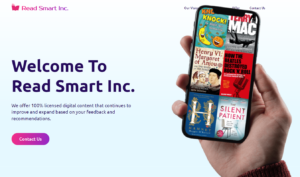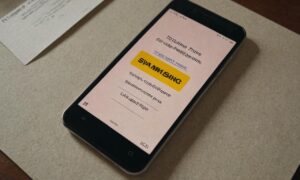In this blog post, explore I will the insidious world of iTunes gift card scams and why these particular cards have become a favorite tool for scammers. Understand you will how to protect yourself and what to do if you fall victim to one of these scams.
As someone who has extensively researched scams and fraud, believe I strongly that awareness and education are key to preventing more people from falling victim to these schemes.
In my experience, I have seen firsthand the devastating financial and emotional impact that gift card scams can have on individuals and families. It’s crucial that we spread the word about these tactics and empower people to protect themselves.
The Anatomy of an iTunes Gift Card Scam
In a typical iTunes gift card scam, the scammer will contact you, often claiming to be from a legitimate company or government agency. They may say you owe money, have won a prize, or need to pay a fee to claim a benefit. The common thread is that they will insist on payment with Apple gift cards.
The scammer will then provide detailed instructions on how to purchase the gift cards and share the card numbers and PINs with them. They may stay on the phone with you the entire time, tricking you into buying Apple gift cards and providing the information before you have time to think twice.
Once the scammer has the card information, they can quickly resell the cards or use them to make purchases, leaving you with no way to recover your money.
Why Gift Cards are a Scammer’s Best Friend
Scammers prefer gift cards for several reasons. First, gift cards are nearly untraceable once they have been used or resold. Unlike credit card transactions or bank transfers, there is no way to reverse the transaction or track down the recipient.
Second, scammers exploit gift card popularity and widespread availability. iTunes gift cards, in particular, are sold in many locations and are a common gift, so they don’t raise red flags for many people.
Finally, gift cards are easy for scammers to resell on secondary markets. They can quickly convert the cards to cash without ever revealing their identity.
As fraud expert Dr. Eliza Kaczmarek notes, “Gift cards have become the currency of choice for scammers due to their untraceable nature and ease of resale on secondary markets. Educating the public about these scams is essential to preventing further victimization.”
Real Victims, Real Consequences: iTunes Gift Card Scam Stories
The impact of iTunes gift card scams can be devastating. Many victims have lost hundreds or even thousands of dollars, often money they couldn’t afford to lose. Some have even been scammed with iTunes cards multiple times.
One victim, a 78-year-old grandmother, was tricked by an iTunes gift card scam that claimed she owed back taxes to the IRS. She lost $1,400 before realizing it was a scam.
Another victim of an iTunes gift card scam was a college student who thought he was paying a deposit for a job. He lost $900, which was most of his savings.
Apple’s Controversial Response to Gift Card Scam Victims
Despite the prevalence of iTunes gift card scams, Apple has been criticized for its response to victims. In some cases, Apple has been sued for refusing to help victims recover their money, even when the scam was reported quickly.
In 2020, a group of victims filed a class-action lawsuit against Apple, alleging that the company was aware of the scam but failed to take adequate measures to protect consumers.
While Apple has since taken some steps to warn customers about gift card scams, many feel the company could do more to prevent these scams and assist victims.
Protecting Yourself: How to Spot and Avoid Gift Card Scams
The best way to protect yourself from iTunes gift card scams is to be aware of the signs and refuse any request to pay with gift cards. Legitimate companies and agencies will never demand payment with gift cards.
If you are ever asked to pay with an iTunes gift card, that is a clear indication of a scam. Always get iTunes cards directly from official Apple representatives or licensed retailers.
Remember, scammers ask for gift cards because they are untraceable and easy to resell. If someone demands payment with an iTunes gift card, hang up the phone, delete the email, or close the door.
| Red Flags | What to Do |
|---|---|
| Demands for payment with iTunes gift cards | Refuse and report the scam |
| High-pressure tactics and urgency | Slow down and think critically |
| Unsolicited contact from unfamiliar sources | Verify identity independently |
| Promises of prizes, benefits, or debt forgiveness | Be skeptical and do your research |
What to Do With Unwanted Gift Cards (Besides Falling for Scams)
If you have unwanted iTunes gift cards, there are legitimate ways to use or sell them without falling for scams. Many reputable websites allow you to sell unwanted gift cards legally for a percentage of their value.
You can also use unwanted iTunes gift cards to purchase apps, music, movies, or other digital content for yourself or as gifts for others.
Remember, never give your iTunes gift card information to someone you don’t know, and always be cautious of unsolicited requests for payment or personal information.
In conclusion, iTunes gift card scams are a serious threat that can have devastating consequences for victims. By understanding how these scams work and taking steps to protect ourselves, we can help prevent more people from falling victim to these insidious schemes. If you have been a victim of an iTunes gift card scam, know that you are not alone and that there are resources available to help you recover and move forward.
For more information on iTunes gift card scams or to report a scam, contact Apple support at 800-275-2273 (U.S.).
See also:
- Why Scammers Prefer Steam Gift Cards: Unmasking the Tactics
- Mastering the Art of Identifying Legitimate Apple Emails and Avoiding Costly Scams
- Track and Outsmart WhatsApp Scammers, You Must: A Comprehensive Guide
- Is the Medicare Flex Card for Seniors Legit or a Scam?
- How to Catch a Rental Scammer: Spot the Red Flags and Avoid Fraud






